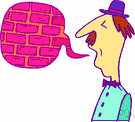vocable
(redirected from Vocables)Also found in: Thesaurus, Encyclopedia.
Related to Vocables: vocabulary
vo·ca·ble
(vō′kə-bəl)n.
A word considered only as a sequence of sounds or letters rather than as a unit of meaning.
adj.
Capable of being voiced or spoken.
[French, from Old French, from Latin vocābulum, name, from vocāre, to call; see wekw- in Indo-European roots.]
American Heritage® Dictionary of the English Language, Fifth Edition. Copyright © 2016 by Houghton Mifflin Harcourt Publishing Company. Published by Houghton Mifflin Harcourt Publishing Company. All rights reserved.
vocable
(ˈvəʊkəbəl)n
1. (Linguistics) any word, either written or spoken, regarded simply as a sequence of letters or spoken sounds, irrespective of its meaning
2. (Phonetics & Phonology) a vocal sound; vowel
adj
(Linguistics) capable of being uttered
[C16: from Latin vocābulum a designation, from vocāre to call]
ˈvocably adv
Collins English Dictionary – Complete and Unabridged, 12th Edition 2014 © HarperCollins Publishers 1991, 1994, 1998, 2000, 2003, 2006, 2007, 2009, 2011, 2014
vo•ca•ble
(ˈvoʊ kə bəl)n.
a word, esp. one considered only as a combination of sounds or letters without regard to meaning.
[1520–30; < Latin vocābulum word, name =vocā(re) to call + -bulum n. suffix]
Random House Kernerman Webster's College Dictionary, © 2010 K Dictionaries Ltd. Copyright 2005, 1997, 1991 by Random House, Inc. All rights reserved.
ThesaurusAntonymsRelated WordsSynonymsLegend:
Switch to new thesaurus
| Noun | 1. |  vocable - a word that is spoken aloud vocable - a word that is spoken aloud word - a unit of language that native speakers can identify; "words are the blocks from which sentences are made"; "he hardly said ten words all morning" |
Based on WordNet 3.0, Farlex clipart collection. © 2003-2012 Princeton University, Farlex Inc.